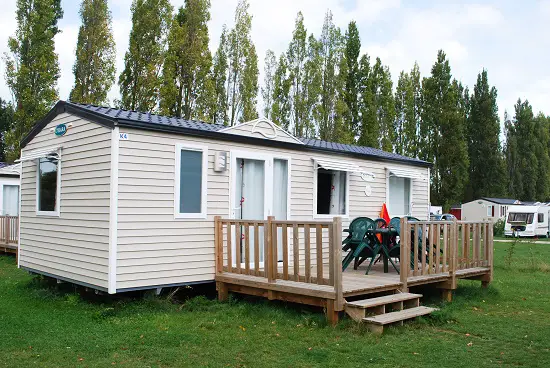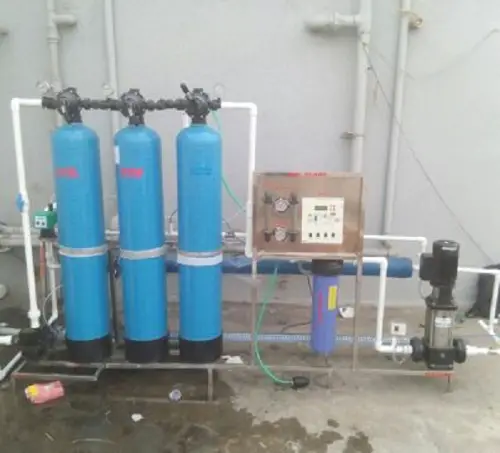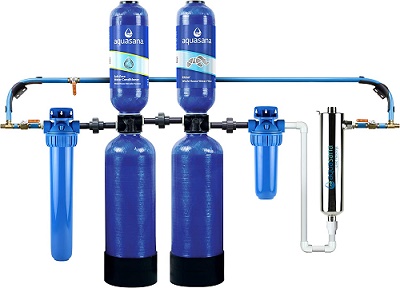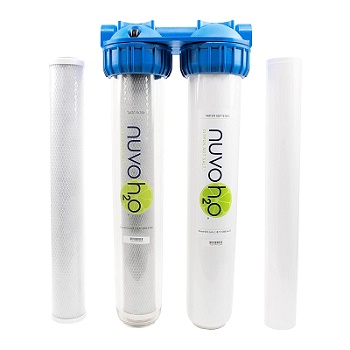Installing a Water Softener in Your Mobile Home: A Comprehensive Guide
If you’re a mobile homeowner and struggling with hard water issues, installing a water softener can be a game-changer. Hard water can lead to limescale buildup, reduced appliance efficiency, and even skin and hair problems. By installing a water softener, you can enjoy the benefits of soft water throughout your mobile home. In this article, we’ll walk you through the process of installing a water softener in your mobile home, step by step. Let’s get started.
What Is a Water Softener?
A water softener is a device that helps reduce the concentration of minerals, primarily calcium, and magnesium, in hard water. Hard water contains high levels of these minerals, which can lead to various issues such as scale buildup in pipes and appliances, reduced effectiveness of soaps and detergents, and potential damage to plumbing systems.
How a water softener works
A water softener works by employing a process called ion exchange. It consists of a tank filled with resin beads that have a negative charge. When hard water passes through the tank, the resin beads attract and bind the positively charged calcium and magnesium ions, effectively removing them from the water.
Once the resin beads become saturated with calcium and magnesium ions, the water softener initiates a regeneration cycle. During this cycle, a brine solution (commonly sodium chloride or potassium chloride) is flushed through the resin tank, which displaces the accumulated minerals and restores the resin beads’ ability to soften the water.
Importance of a water softener
By installing a water softener, you can enjoy numerous benefits, including reduced scale buildup on fixtures and appliances, softer and smoother skin and hair after bathing, increased lifespan of plumbing systems and appliances, and improved efficiency of soaps and detergents.
It’s important to note that water softeners may not be necessary or suitable for every household. The decision to install a water softener depends on the hardness of your water, your specific needs, and any potential health considerations. Consulting with a water treatment professional or conducting a water analysis can help determine if a water softener is the right choice for you.
How To Put A Water Softener In A Mobile Home

1. Assess Your Water Softener Needs
Before you begin the installation process, it’s important to assess your water softener needs. Consider factors such as the size of your mobile home, the number of occupants, and the water hardness level in your area. This information will help you determine the appropriate capacity and type of water softener for your specific requirements.
2. Choose the Right Water Softener System
There are various types of water softener systems available, including salt-based, salt-free, and magnetic water softeners. Research and compare the different options to determine which one suits your needs best. Factors to consider include water hardness, budget, maintenance requirements, and space availability in your mobile home.
3. Prepare for Installation
Before installing the water softener, gather all the necessary tools and equipment. This may include pipe cutters, wrenches, tubing, fittings, and a bypass valve. Ensure you have proper safety gear, such as gloves and safety glasses, to protect yourself during the installation process.
4. Locate the Main Water Supply
Locate the main water supply line in your mobile home. It is typically located near the water meter or where the water line enters the home. Shut off the main water supply and drain any water remaining in the pipes to prepare for the installation.
5. Determine the Installation Location
Choose a suitable location for your water softener. Consider factors such as proximity to the main water supply, space availability, and accessibility for maintenance. It is recommended to install the water softener near the point where the main water line enters your mobile home.
How To Find A Roof Leak In A Mobile Home
6. Install the Bypass Valve
Install a bypass valve to allow you to redirect water flow around the water softener when necessary, such as during maintenance or regeneration cycles. Follow the manufacturer’s instructions to correctly install the bypass valve, ensuring proper alignment and connection to the main water line.
7. Connect the Water Softener System
Connect the water softener system to the main water line using the appropriate tubing and fittings. Ensure all connections are secure and free from leaks. Follow the manufacturer’s instructions for the specific model you are installing, as installation steps may vary.
8. Set Up the Brine Tank
If you’re installing a salt-based water softener, set up the brine tank according to the manufacturer’s instructions. This involves adding the appropriate amount of salt and setting the regeneration cycle based on your water usage and hardness level.
9. Test and Adjust
Turn on the main water supply and check for any leaks or abnormalities in the water softener system. Run water from different faucets in your mobile home to ensure the water softener is functioning properly. Adjust the settings as needed, such as water hardness level and regeneration frequency, based on the manufacturer’s guidelines and your water quality.
10. Regular Maintenance
To keep your water softener in optimal condition, perform regular maintenance tasks. This may include cleaning the brine tank, replenishing salt or other regeneration media, and checking for any signs of damage or malfunction. Refer to the manufacturer’s instructions for specific maintenance requirements.
Here are some frequently asked questions about installing a water softener in a mobile home:
Can I install a water softener in a mobile home?
Yes, you can install a water softener in a mobile home. It’s a beneficial addition that can help reduce the effects of hard water and improve water quality throughout your mobile home.
Do I need any special considerations for installing a water softener in a mobile home?
While the installation process for a water softener in a mobile home is similar to that in a traditional home, there are a few special considerations. These include space limitations, accessibility for maintenance, and potential water pressure issues. It’s important to choose a compact water softener model and ensure proper access for installation and future servicing.
How much space do I need to install a water softener in a mobile home?
The space required for a water softener in a mobile home depends on the specific model and capacity you choose. It’s important to consider the available space in your mobile home and select a water softener that fits within those dimensions. Compact and space-saving options are available in the market to accommodate mobile home installations.
Can I install the water softener myself, or do I need professional help?
The installation process for a water softener can vary depending on your plumbing system and experience with plumbing work. If you have prior plumbing knowledge and feel confident in your abilities, you may be able to install the water softener yourself by following the manufacturer’s instructions. However, if you are uncertain or uncomfortable with the installation process, it’s recommended to seek professional help from a plumber or water softener installation expert.
Can I take the water softener with me if I move from my mobile home?
Yes, one advantage of installing a water softener in a mobile home is that it can be uninstalled and taken with you if you move. However, it’s important to ensure that the water softener is properly disconnected, drained, and prepared for transportation. Additionally, you may need to adjust the installation process based on the plumbing configuration of your new location.
How often do I need to regenerate or maintain the water softener in a mobile home?
The frequency of regeneration and maintenance for a water softener in a mobile home depends on factors such as water hardness, water usage, and the specific model of the water softener. It’s important to follow the manufacturer’s instructions for proper maintenance and regeneration schedules. Regular maintenance tasks may include checking salt levels, cleaning the brine tank, and ensuring the proper functioning of the system.
Will a water softener affect the water pressure in my mobile home?
In some cases, installing a water softener may slightly affect the water pressure in your mobile home. However, modern water softeners are designed to minimize any impact on water pressure. It’s important to choose a water softener that is appropriate for your water usage and consult with the manufacturer or a professional if you experience significant water pressure issues after installation.
Best Water Softener For Mobile Home
1. Fleck 5600SXT Water Softener
Check Price On Amazon
This system is known for its reliability and efficiency. It features a digital control valve for easy operation and offers different capacity options to suit your needs. The compact design makes it suitable for mobile home installations.
Pros:
- Reliability: The Fleck 5600SXT is known for its reliable performance. It has a solid construction and is built to last, ensuring long-term effectiveness in water softening.
- Efficiency: This water softener uses a digital control valve that allows for precise and efficient regeneration cycles. It regenerates only when necessary, saving water, salt, and energy.
- Capacity Options: The Fleck 5600SXT is available in various capacity options, allowing you to choose the right size for your water-softening needs. Whether you have a small or large household, there is a suitable option available.
- Ease of Use: The digital control valve of the Fleck 5600SXT makes it easy to operate and program. You can customize settings, set regeneration schedules, and monitor performance with convenience.
- Compatibility: This water softener is compatible with a wide range of media and resin options, giving you flexibility in choosing the best combination for your specific water conditions.
Cons:
- Space Requirement: The Fleck 5600SXT is not the most compact water softener on the market. It requires a certain amount of space for installation, so you need to ensure that you have adequate room available.
- Professional Installation Recommended: While it is possible to install the Fleck 5600SXT yourself if you have plumbing knowledge, it is generally recommended to have professional assistance. This ensures proper installation and avoids any potential issues or mistakes.
2. Aquasana Rhino Series Water Softener
Check Price On Amazon
The Aquasana Rhino Series is a popular choice for mobile homes. It utilizes a salt-free conditioning process to reduce scale buildup without adding sodium to the water. It also includes a pre-filter for removing sediments and other contaminants.
Pros:
- Salt-Free Conditioning: The Aquasana Rhino Series Water Softener utilizes a salt-free conditioning process, making it a great option for those who want to avoid adding sodium to their water. It prevents scale buildup without the need for salt or chemicals.
- Whole House Filtration: In addition to water softening, the Aquasana Rhino Series includes a pre-filter that helps remove sediments and other contaminants from your water. It provides comprehensive filtration for your entire household.
- Low Maintenance: This water softener requires minimal maintenance compared to traditional salt-based systems. There is no need to constantly monitor and replenish salt levels, reducing ongoing maintenance tasks.
- Environmentally Friendly: Since the Aquasana Rhino Series operates without salt or chemicals, it is considered environmentally friendly. It helps reduce the discharge of salt brine into the environment.
- Easy Installation: The Aquasana Rhino Series is designed for easy installation, and it comes with detailed instructions and support materials. Many users find it straightforward to install, although professional assistance is always an option.
Cons:
- Limited Capacity: The capacity of the Aquasana Rhino Series Water Softener may be limited compared to some salt-based systems. It’s important to choose the appropriate model based on your household’s water consumption and hardness levels.
- Effectiveness for Very Hard Water: While the Aquasana Rhino Series is effective for most moderate to moderately hard water conditions, it may not be as efficient for extremely hard water. In such cases, a salt-based system might be more suitable.
- Initial Cost: The Aquasana Rhino Series Water Softener tends to have a higher initial cost compared to traditional salt-based systems. However, considering its long-term benefits and lower maintenance requirements, it can be a cost-effective option over time.
- Flow Rate Limitation: Some users have reported a slight reduction in water flow rate when using the Aquasana Rhino Series. However, this can be mitigated by selecting the appropriate model based on your household’s needs.
3. NuvoH2O Home Duo Water Softener + Taste Filter System
Check Price On Amazon
The Nuvo H2O DPHB system uses a proprietary chelation technology that prevents scale buildup without salt or chemicals. It’s compact and easy to install, making it suitable for mobile homes. It also requires minimal maintenance.
Pros:
- Salt-Free System: The NuvoH2O Home Duo Water Softener utilizes a salt-free technology called chelation to prevent scale buildup. This makes it a great option for those who prefer a salt-free solution and want to avoid the negative effects of sodium in their water.
- Compact and Space-Saving: The NuvoH2O Home Duo is designed to be compact and space-saving. It has a small footprint, making it suitable for installation in homes with limited space, including mobile homes.
- No Electricity Required: This water softener operates without the need for electricity, which can be advantageous in situations where the power supply is limited or during power outages.
- Easy Installation: The NuvoH2O Home Duo is designed for easy installation, and it comes with a comprehensive installation guide. Many users find it straightforward to install themselves, although professional assistance is always an option.
- Environmentally Friendly: Since the NuvoH2O Home Duo doesn’t use salt or chemicals, it is considered environmentally friendly. It doesn’t contribute to salt discharge or chemical waste, making it a more sustainable option.
Cons:
- Limited Capacity: The NuvoH2O Home Duo has a limited capacity compared to some traditional salt-based water softeners. It may not be suitable for households with high water consumption or extremely hard water conditions. Consider your specific needs and choose the appropriate model accordingly.
- Regular Cartridge Replacement: The system requires regular cartridge replacement to maintain its effectiveness. The frequency of cartridge replacement will depend on your water usage and the hardness of your water.
- Effectiveness for Very Hard Water: While the NuvoH2O Home Duo is effective for most moderate to moderately hard water conditions, it may not be as efficient for extremely hard water. It’s important to test your water hardness and consult with professionals to determine if this system is suitable for your specific situation.
- Ongoing Cost: Along with the initial cost of the system, there will be ongoing costs associated with cartridge replacement. Factor in the cost of replacement cartridges when evaluating the overall affordability of the NuvoH2O Home Duo.
Conclusion
Installing a water softener in your mobile home is a worthwhile investment that can significantly improve your water quality and household comfort. By following this comprehensive guide, you’ll be able to successfully install a water softener and enjoy the benefits of soft water throughout your mobile home. Remember to choose the right system, carefully follow installation instructions, and perform regular maintenance to ensure optimal performance.




